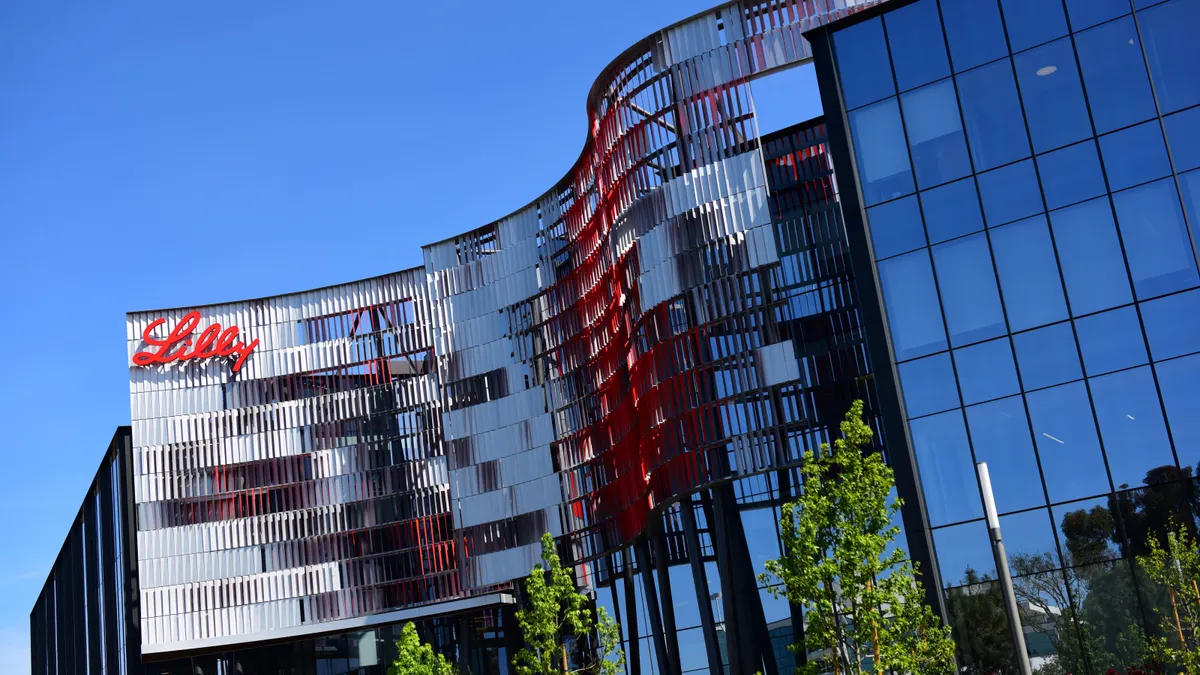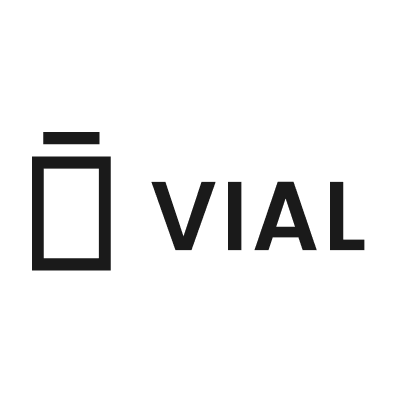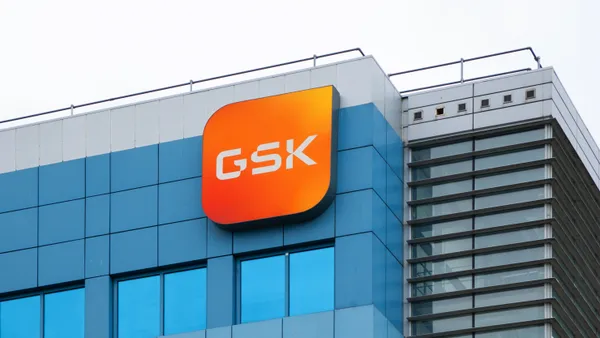Dive Brief:
- Along with its second quarter earnings announcement, Eli Lilly announced that it has finished the strategic review of its animal health business and will divest Elanco through an initial public offering.
- The offering will represent less than 20% ownership stake and is expected to complete in the second half. Lilly will divest the remainder of the business in "a tax-efficient manner."
- The second quarter was driven by human pharmaceuticals, particularly new products, which accounted for more than 12% of worldwide volume growth. Total revenues from the quarter were $6.3 billion, with about half of sales coming from the U.S.
Dive Insight:
While Lilly reported a strong second quarter, the move to divest Elanco raised questions about its capital allocation strategy and the company's stance on President Trump's drug pricing blueprint.
Lilly CEO Dave Ricks depicted the divestiture as opportune during a Tuesday morning call with investors, and said that it would maximize business opportunities for Lilly's human pharmaceutical business. Executives noted several divestitures of Elanco products were made prior to the decision to spin it off, including some manufacturing facilities and a distribution agreement. Growth of the animal health business was essentially flat due to the divestitures.
During the second quarter, the company completed a $5 billion share repurchase program, and authorized another $8 billion in share repurchases. While the company is largely putting cash into that, executives said they are still looking for clinical-stage molecules that they can add to the pipeline.
"I wouldn't interpret it at all that we're satisfied with business development [so far]," Ricks said on the call. "We are in a position now — the topline is growing, we're growing income, we're growing cash flows — we are very interested in acquiring assets that add to all of our therapeutic areas of interest. We're not plugging a hole here. It's really about building value for the long-term," he added, saying expect to see a "continuous flow of pipeline adds."
But Ricks was cautious, noting the company predicts the healthcare landscape will change in other ways as the government implements new policies, particularly those that could affect the rebates that are often agreed upon with pharmacy benefit managers.
"It's difficult to speculate on a proposed rule change, when all we have is the title of the rule," said Ricks. "But you can basically speculate like we can, it points to proposed changes to the anti-kickback statute and rebate rule, and replacing it with a new set of safe harbors."
"The huge caveat here is we don't know what this rule is or where the system will go. We paused on the list price changes in the U.S., waiting to see what is happening here," added Ricks. He noted that changes to the Medicaid system could have positive impacts on Lilly and its diabetes franchise, but also said that there were too many potential possibilities to predict how regulatory reforms could impact the company, and the industry, going forward.
Lilly is among several other big pharmas that have enacted price freezes, opting to hold off on the traditional mid-year price increases until there is further clarity from the government on drug pricing.














